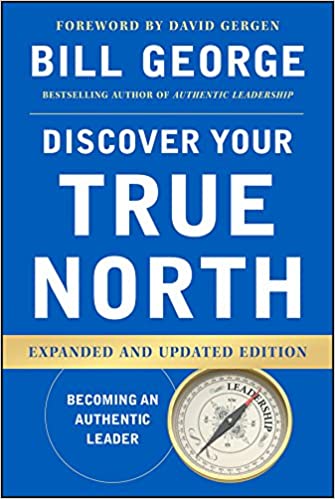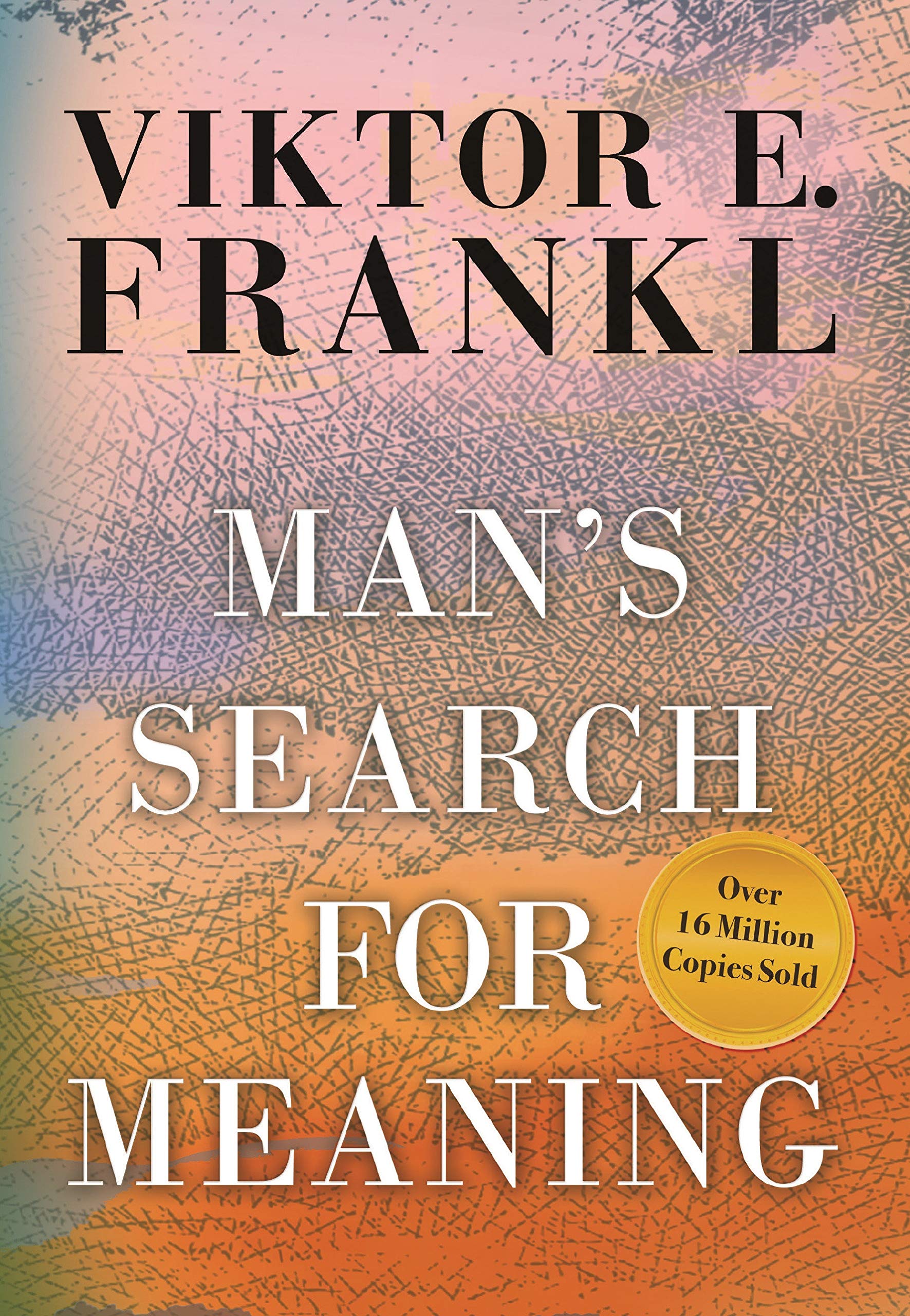Best Books for Capacity Building
Reading is an essential part of building your capacity in leadership, work and life. I want to spotlight some of the books that impacted me the most in my own capacity building journey, and can help you in yours. This list will be updated over time. And, of course, I recommend you check out my books as well.
Spiritual Capacity

Discover Your True North by Bill George
Leadership is less about tactics than it is about getting alignment on your purpose and values, and leading according to those values. This is one of the definitive books on helping you discover your compass as a leader and make a bigger impact on the people you lead.

Man’s Search For Meaning by Viktor Frankl
Viktor Frankl is a Holocaust survivor and an eminent psychiatrist, and he wrote this moving, fascinating book about his journey to process his trauma and find purpose in his life. This book provides powerful insights to help clarify your core principles such as your purpose and values and will give you better perspective on life.

Essentialism by Greg McKeown
To get more out of life, Greg McKeown makes a compelling case that we have to make a concerted effort to do less. Essentialism? is a, frankly, essential guide to helping you remove extraneous responsibilities from your life and focus only on what matters most.

Insight by Tasha Eurich
Self-awareness is both essential for leadership and quite rare. Dr. Tasha Eurich has spent her career researching this quality, and has found that while 90 percent of people believe they are self-aware, only 15 percent actually are. Dr. Eurich takes you into the minds of some of that 15 percent, showing how truly self-aware people think, act and lead, and helps you apply their practices to your own life and leadership.

Think and Grow Rich by Napoleon Hill
The oldest book on this list, Napoleon Hill’s iconic book is still on the Amazon bestseller charts nearly a century after its publication. Hill shares the principle of the law of attraction, which dictates that we must actively focus on the specific goals we want to achieve in business and life—meaningful achievements will not come naturally.

Principles by Ray Dalio
As founder of Bridgewater Associates, Ray Dalio has built a significant legacy. In particular, his firm has become equally known for its truly unique culture, not just for the industry leading ROI it drives for clients. Dalio walks readers through a detailed story of his career then outlines the indispensable principles he has used to guide his life, build a world-class organization, and create a culture that will be studied by business thinkers for decades to come.
Intellectual Capacity

Originals by Adam Grant
This is a fascinating look at what separates truly original individuals, teams and organizations from the pack. Adam Grant’s work is packed with fascinating anecdotes and a library worth of research, and he sheds light on how some of the greatest creative minds in history produce such great work, how organizations eliminate groupthink, why values are more useful than rules in encouraging the behavior we want, and much more.

Loonshots by Safi Bahcall
Safi is a friend, biotech entrepreneur and brilliant scientist. In this book, he explores how teams can avoid stifling world-changing breakthroughs and create products, initiatives and ideas that truly change the world. The book is backed up by excellent research and anecdotes for why great ideas die on the vine, and how to help them succeed.

The Ministry of Common Sense by Martin Lindstrom
Martin Lindstrom has a compelling theory that as businesses grow they lose sight of common sense issues, such as what their customers want and whether their processes are best service that audience. In this book, he outlines actionable strategies to help businesses cut out bureaucratic red tape and act in the best interests of customers, clients and employees. It’s a must read for anyone in a rapidly growing business.

Atomic Habits by James Clear
There’s a decent chance you’ve already read this book, which has been on the New York Times bestseller list for years. If you haven’t, you need to learn why millions of people find this book so impactful. James Clear is an insightful, persuasive writer, and this is a definitive manual on how to build world-class habits, cut out bad ones, and make dramatic life changes by getting just 1 percent better each day.

The Four-Hour Work Week by Tim Ferriss
This book, which launched Tim Ferriss’ remarkable career, offers an interested glimpse at a radical way of integrating life and business. Ferriss offers a way for entrepreneurial thinkers to get outside the confines of a traditional work-life and chart a new, adventurous course. It’s a highly influential book that helped build the digital nomad lifestyle that has become so popular since its publishing.
Physical Capacity

Endure by Alex Hutchinson
An award-winning journalist, Alex Hutchinson takes a deep dive into incredible stories of resilience, studying subjects ranging from world class athletes to ordinary people. Building our physical capacity is about pushing our own limits, and Hutchinson offers evidence-backed inspiration on that front.

Keep Climbing by Sean Swarner
Sean Swarner will make you rethink what is possible. Despite battling cancer twice in his childhood and losing functionality in one of his lungs, he has become one of the world’s best endurance athletes. Swarner has climbed the highest peak on all seven continents, completed an Iron Man Triathlon and reached both the North and South Poles. His story will help you realize you can achieve much more than you believe.

Can’t Hurt Me by David Goggins
Today, David Goggins is one of the world’s most decorated military veterans, having completed Navy SEAL, Army Ranger and Air Force Tactical Air Controller Training. He was also named “the fittest (real) man in America,” by Outside magazine. However, Goggins faced poverty and abuse as a child, and was physically limited as a young man. Goggins shares the story of how he built astonishing physical capacity after starting from zero; you’ll learn a lot for your own health and fitness journey.
Emotional Capacity

Mistakes Were Made (By Not By Me) by Carol Tavris and Eliot Aronson
This book will make you rethink your own beliefs and behavior more than anything else you can read. Carol Tavris and Eliot Aronson are two top psychologists, and they share a fascinating guide to help us understand why we double-down on bad decisions, dig in our heels when we are wrong, and struggle to reconcile conflicting beliefs. It’s absolutely vital for navigating our modern world of echo chambers and information overload.

Quiet by Susan Cain
Few recent books have started a global conversation the way Susan Cain has affected how we talk about introversion at work and in life. If you are an introvert, or have one in your family, friend group or professional team, this is a must read. It’s an insightful portrait into what introversion means, what introverts value and what they can bring to others.

The Obstacle Is The Way by Ryan Holiday
Ryan Holiday is one of the world’s leading scholars on stoicism, the ancient Greek philosophy of enduring pain or adversity with perseverance and resilience. The book shares powerful insights on how to view adversity as a positive and to focus on controlling what you can control in the face of difficult situations.

Grit by Angela Duckworth
In her late 20s, Angela Duckworth left a grueling consulting job to become a teacher, and quickly became fascinated by what qualities made some students succeed in the face of adversity, and what made others quit. She pursued a PhD to answer that question, and Grit is the culmination of that brilliant research. Duckworth demonstrates why success in life often is closely tied to our perseverance in the face of obstacles, and why this is a better determinant of success than our grades, experience or even our traditional markers of intelligence and aptitude.

Never Eat Alone by Keith Ferrazzi
Many thinkers have proposed that relationships are crucial to business success. Few, however, have outlined a playbook to build powerful professional networks and partnerships as well as Keith Ferrazzi has in his first book, a New York Times bestseller. This book will not only convince you of the value of networking, but will provide an effect way to do it in your own career.

How To Win Friends and Influence People by Dale Carnegie
Another timeless classic, Dale Carnegie’s definitive book on relationship building is one of my personal favorites—and is a great starting guide to building your personal and professional network.